VW ID. Buzz Cargo vs Tesla Model 3 – Which model is better for everyday use?
Two cars, one duel: VW ID. Buzz Cargo meets Tesla Model 3.
Which one wins in performance, efficiency and value for money? Find out now!
Costs and Efficiency:
Price and efficiency are often the first things buyers look at. Here it becomes clear which model has the long-term edge – whether at the pump, the plug, or in purchase price.
Tesla Model 3 has a distinct advantage in terms of price – it starts at 34300 £, while the VW ID. Buzz Cargo costs 43600 £. That’s a price difference of around 9287 £.
In terms of energy consumption, the advantage goes to the Tesla Model 3: with 13.20 kWh per 100 km, it’s decisively more efficient than the VW ID. Buzz Cargo with 19.20 kWh. That’s a difference of about 6 kWh.
As for range, the Tesla Model 3 performs clearly perceptible better – achieving up to 750 km, about 295 km more than the VW ID. Buzz Cargo.
Engine and Performance:
Power, torque and acceleration are the classic benchmarks for car enthusiasts – and here, some clear differences start to show.
When it comes to engine power, the Tesla Model 3 has a noticeable edge – offering 460 HP compared to 340 HP. That’s roughly 120 HP more horsepower.
In terms of top speed, the Tesla Model 3 performs evident better – reaching 262 km/h, while the VW ID. Buzz Cargo tops out at 160 km/h. The difference is around 102 km/h.
There’s also a difference in torque: VW ID. Buzz Cargo pulls minimal stronger with 679 Nm compared to 660 Nm. That’s about 19 Nm difference.
Space and Everyday Use:
Whether family car or daily driver – which one offers more room, flexibility and comfort?
Seats: Tesla Model 3 offers evident more seating capacity – 5 vs 3.
In curb weight, Tesla Model 3 is distinct lighter – 1822 kg compared to 2264 kg. The difference is around 442 kg.
When it comes to payload, VW ID. Buzz Cargo significantly takes the win – 753 kg compared to 333 kg. That’s a difference of about 420 kg.
Who comes out on top?
Overall, the Tesla Model 3 shows itself to be leaves the rival little chance and secures the title of DriveDuel Champion.
It convinces with the more balanced overall package and proves to be the more versatile choice for everyday use.
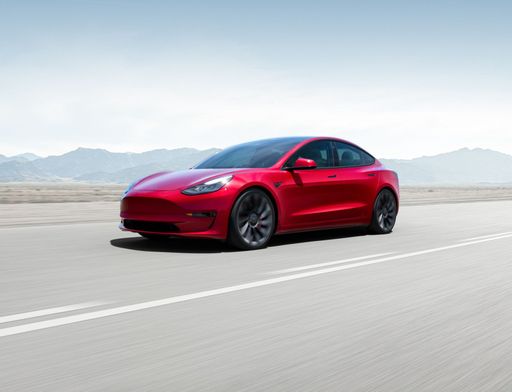 @ Tesla, Inc.
@ Tesla, Inc.
Tesla Model 3
VW ID. Buzz Cargo
The VW ID. Buzz Transporter represents a bold leap into the future with its innovative electric design and retro-inspired aesthetic. Combining practicality with modern technology, it offers a spacious interior and advanced connectivity features ideal for both urban and long-distance journeys. This vehicle stands as a testament to Volkswagen's commitment to sustainability and forward-thinking mobility solutions.
details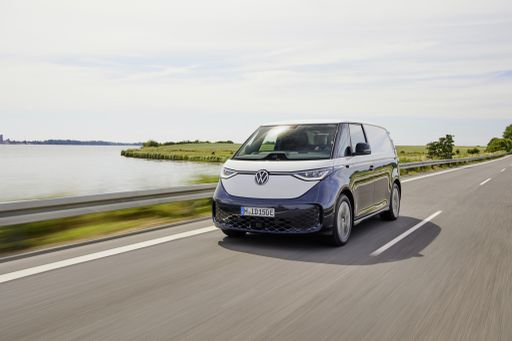 @ Volkswagen AG / VW Media
@ Volkswagen AG / VW Media
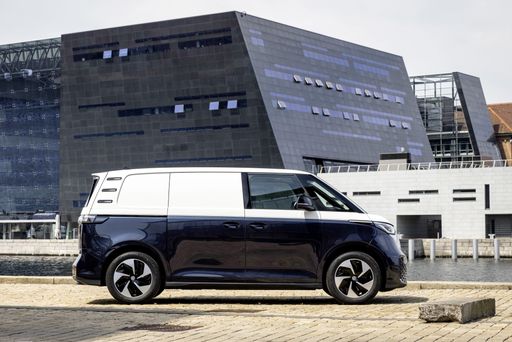 @ Volkswagen AG / VW Media
@ Volkswagen AG / VW Media
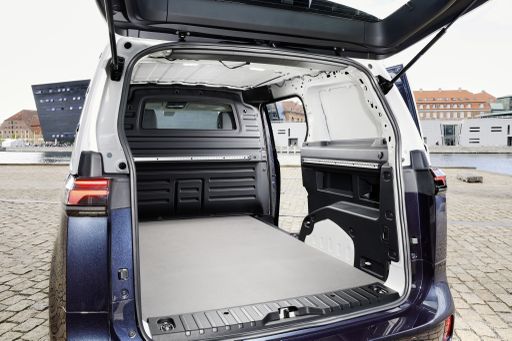 @ Volkswagen AG / VW Media
@ Volkswagen AG / VW Media
Tesla Model 3
The Tesla Model 3 slices through daily commuting with a silent, confident shove that makes petrolheads reassess their life choices, while its minimalist cabin feels more like a slick gadget gallery than a traditional car interior. For buyers after a fuss-free, tech-forward electric with plenty of grin factor and low running drama, it’s hard to beat—just don't be surprised when the car updates itself overnight.
details @ Tesla, Inc.
@ Tesla, Inc.
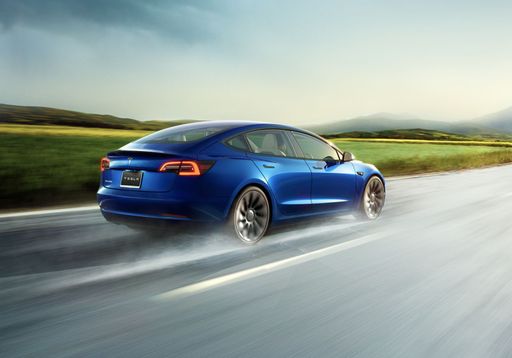 @ Tesla, Inc.
@ Tesla, Inc.
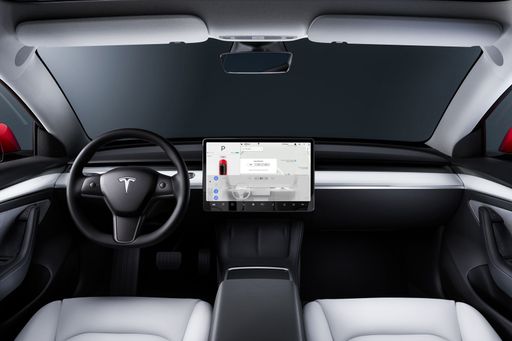 @ Tesla, Inc.
@ Tesla, Inc.
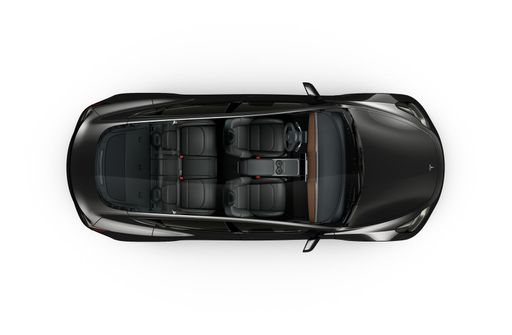 @ Tesla, Inc.
@ Tesla, Inc.
 @ Volkswagen AG / VW Media
@ Volkswagen AG / VW Media
|
 @ Tesla, Inc.
@ Tesla, Inc.
|
|
|
|
Costs and Consumption |
|
|---|---|
|
Price
43600 - 51400 £
|
Price
34300 - 50100 £
|
|
Consumption L/100km
-
|
Consumption L/100km
-
|
|
Consumption kWh/100km
19.2 - 20.3 kWh
|
Consumption kWh/100km
13.2 - 16.7 kWh
|
|
Electric Range
330 - 455 km
|
Electric Range
550 - 750 km
|
|
Battery Capacity
59 - 79 kWh
|
Battery Capacity
64.5 - 83 kWh
|
|
co2
0 g/km
|
co2
0 g/km
|
|
Fuel tank capacity
-
|
Fuel tank capacity
-
|
Dimensions and Body |
|
|---|---|
|
Body Type
Cargo Van
|
Body Type
Sedan
|
|
Seats
3
|
Seats
5
|
|
Doors
4
|
Doors
4
|
|
Curb weight
2264 - 2510 kg
|
Curb weight
1822 - 1929 kg
|
|
Trunk capacity
-
|
Trunk capacity
594 L
|
|
Length
4712 mm
|
Length
4720 - 4724 mm
|
|
Width
1985 mm
|
Width
1850 mm
|
|
Height
1932 mm
|
Height
1431 - 1440 mm
|
|
Max trunk capacity
3900 L
|
Max trunk capacity
-
|
|
Payload
640 - 753 kg
|
Payload
303 - 333 kg
|
Engine and Performance |
|
|---|---|
|
Engine Type
Electric
|
Engine Type
Electric
|
|
Transmission
Automatic
|
Transmission
Automatic
|
|
Transmission Detail
-
|
Transmission Detail
Reduction Gearbox
|
|
Drive Type
Rear-Wheel Drive, All-Wheel Drive
|
Drive Type
Rear-Wheel Drive, All-Wheel Drive
|
|
Power HP
170 - 340 HP
|
Power HP
283 - 460 HP
|
|
Acceleration 0-100km/h
-
|
Acceleration 0-100km/h
3.1 - 6.1 s
|
|
Max Speed
145 - 160 km/h
|
Max Speed
201 - 262 km/h
|
|
Torque
310 - 679 Nm
|
Torque
420 - 660 Nm
|
|
Number of Cylinders
-
|
Number of Cylinders
-
|
|
Power kW
125 - 250 kW
|
Power kW
208 - 338 kW
|
|
Engine capacity
-
|
Engine capacity
-
|
General |
|
|---|---|
|
Model Year
2024
|
Model Year
2025
|
|
CO2 Efficiency Class
A
|
CO2 Efficiency Class
A
|
|
Brand
VW
|
Brand
Tesla
|
Is the VW ID. Buzz Cargo offered with different drivetrains?
The VW ID. Buzz Cargo is available as Rear-Wheel Drive or All-Wheel Drive.
The prices and data displayed are estimates based on German list prices and may vary by country. This information is not legally binding.
